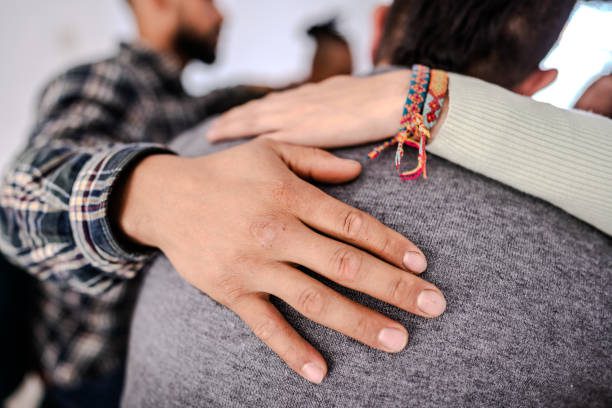This content is for informational and educational purposes only. Always consult a qualified healthcare provider.
Last Updated on July 24, 2025 by Pen Pixel
Some people drink to forget.
Some people use to feel something.
And some of us? We didn’t even notice when we crossed the line.
One day it was just a coping mechanism.
Next day? We were in two battles at once and losing both.
📋 Table of Contents
The Key Takeaway.
Mental illness and addiction don’t show up with warning signs or gentle introductions. They crash into each other like a drunk driver and a panic attack, messy, loud, and completely misunderstood. If you’re fighting both, it’s not your fault. But it is your fight. And pretending one doesn’t exist won’t heal the other.
Addiction Is Usually the Side Effect, Not the Problem.
People love to talk about addiction like it’s just a series of “bad choices.”
Like you woke up one day and said, “Hmmm… let me ruin my life for fun.”
Nah.
Sometimes, addiction is just what happens when your brain is already breaking, and no one’s listening. It’s the product of trying to survive when your body doesn’t know how to feel safe. Or when your mind is throwing panic parties every day. You reach for whatever works, even if it’s self-destruction in a fancy bottle.
Nobody wakes up and chooses chaos. But when your reality is already chaotic? Sometimes the bottle feels safer than the silence.
READ: ADHD and Addiction.
Mental Health and Addiction.
When you’re dealing with both mental illness and addiction, it’s not just two problems. It’s one hell of a tornado that keeps feeding itself.
Why Dual Diagnosis Is So Hard to Deal With.
Most people don’t even recognize they have one diagnosis. Now imagine being hit with two.
Your mind is at war. Your body is running on autopilot. You’re tired, but wired. You crave peace, but your peace looks like chaos.
Nobody teaches you how to heal when the thing that numbs you is also the thing destroying you.
It’s not just about quitting or staying sober.
It’s about: “Who am I without the coping mechanism?”
That question is scary. It’s why most people never get better. They’d rather deal with the devil they know.
And can we talk about shame for a second?
Because THAT is the cement holding the whole mess together.
You’re ashamed of your mind for being unstable.
Ashamed of your habits for being harmful.
Ashamed of your past for being messy.
And ashamed of your future for being uncertain.
But listen to me: Shame is not a treatment plan.
You can’t treat addiction without treating the mind it came from.
You can’t just take away the coping mechanism and leave the wound wide open. That’s like stealing someone’s crutch while their leg is still broken. They’ll just fall again, harder.
Mental health issues are louder when you’re sober.
And that’s terrifying. Because once the “numbing” goes away, you feel everything. That flood of emotion? It’s not a relapse waiting to happen. It’s your body saying, “Okay. We’re ready to deal now.”
Relapse isn’t always failure, it’s feedback.
Sometimes relapse is your body saying, “Hey. We’re overwhelmed. Something’s missing.” It’s not always weakness. Sometimes it’s just lack of support.
Therapy isn’t magic, but it’s not useless either.
Don’t expect to cry one time and be healed. But do expect to meet parts of yourself you’ve buried under substances. The real work begins when you stop numbing and start listening.
People don’t talk enough about how lonely it feels.
Like, deeply lonely. Not “no one called me” lonely. I’m talking, “I could disappear and no one would notice” lonely. That kind of pain makes the wrong things look comforting. It makes the bottle look like a friend. The pills feel like hugs. But it’s fake comfort. Temporary. Dangerous.
Recovery will bore you.
It’s not cute. It’s not one big inspirational moment. It is a thousand little choices that feel boring, painful, uncomfortable, and awkward. And that’s okay. That’s how healing looks sometimes. No fireworks. Just quiet commitment.
What Works?
- Naming the pain. Not just “I’m sad.” No. Get specific. “I feel abandoned.” “I feel replaceable.” “I feel like a burden.” Name it. Don’t let it float around like fog.
- Telling one person the truth. Not your whole circle. Not social media. Just one human being who sees you, listens, and doesn’t try to fix you.
- Changing your reward system. The dopamine from drugs or alcohol is loud. But start rewiring your brain for smaller wins like eating a hot meal, taking a walk, writing down one honest thought. It will be weird at first. Boring. But it builds something real.
- Crying without guilt. Tears aren’t weakness. Sometimes they’re just the body’s version of detox.
- Unlearning the “strong person” myth. The strong ones break too. They just hide it better. Stop aiming to be strong. Aim to be honest.
What Dual Diagnosis Really Feels Like.
It feels like being stuck between drowning and choking.
You’re not sure if you’re dying from the inside or trying too hard to look fine on the outside.
- Every “Are you okay?” feels like a trick question.
- Every “You just need to stop using” feels like they missed the entire point.
It’s like your brain and your body are beefing 24/7. One says, “Get better.” The other screams, “But I’m tired, and numb is easier.”
- You’re in survival mode.
- And survival mode isn’t sustainable.
- It’s just buying time until something changes.
- And yes, you can be that “something.”
Dual diagnosis doesn’t make you broken. It means your pain went looking for an exit. And that exit just happened to come with a price tag. But guess what? You don’t have to keep paying it.

